Whether you’re framing a house, trimming baseboards, or building custom furniture, having the right miter saw makes a world of difference. Two of the most trusted names in the game, Bosch and DeWalt are each offering a 12-inch sliding miter saw packed with power and precision. To help you cut through the noise, we’re putting Bosch vs DeWalt miter saws head to head comparing all their features, specs, and reviews so you can figure out which one fits your needs.
Quick look:
- Miter saw Bosch vs DeWalt: Bosch delivers smooth, shop-quality cuts with its unique Axial-Glide™ system, while DeWalt prioritizes portability and jobsite accuracy with its XPS cutline guide.
- DeWalt’s DWS780 is lighter and easier to transport, ideal for contractors on the move; Bosch’s GCM12SD is heavier but excels in precision and stability.
- Both saws pack 15-amp motors and 12″ blades, but differ in features; Bosch’s front bevel controls and glide system vs. DeWalt’s shadow alignment and compact carry handle.
- Bosch is worth the splurge for woodworking and cabinetry; for framing, remodeling, and mobility, DeWalt offers better value and convenience.
As an Amazon Associate, we earn from qualifying purchases. Some of the links below are affiliate links, meaning at no extra cost to you, if you click through and make a purchase we may earn a commission.
Overview of DeWalt vs Bosch miter saws
Bosch GCM12SD in a nutshell
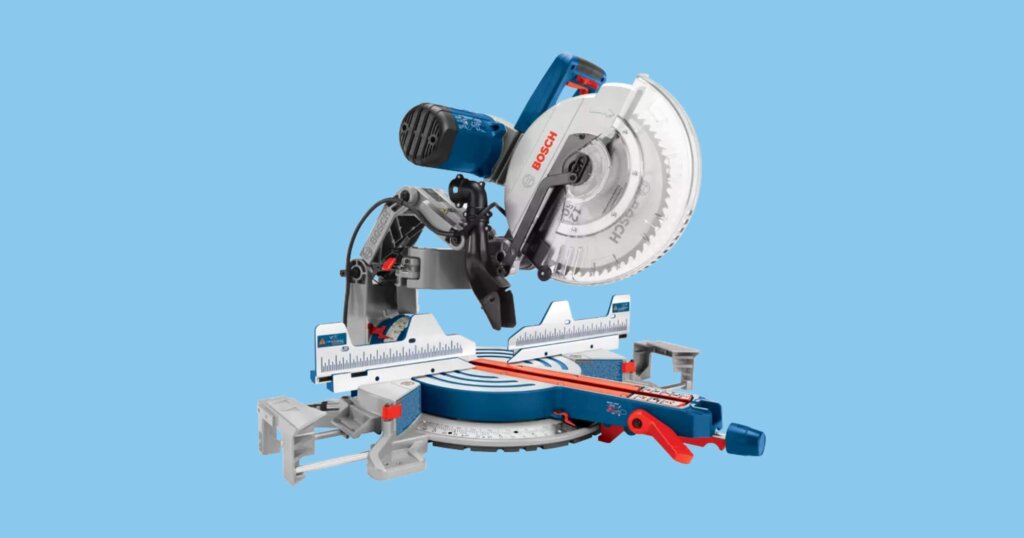
The Bosch GCM12SD is a 12-inch dual-bevel glide miter saw that stands out for its unique Axial-Glide™ system, a space-saving, rail-free design that delivers ultra-smooth cuts with serious precision. It runs on a powerful 15-amp motor and is built with the kind of rock-solid durability Bosch tools are known for. While it’s a bit heavier, it makes up for that with a compact footprint and a fluid cutting motion that feels almost effortless, whether you’re slicing through thick crown molding or delicate trim.
DeWalt DWS780 in a nutshell
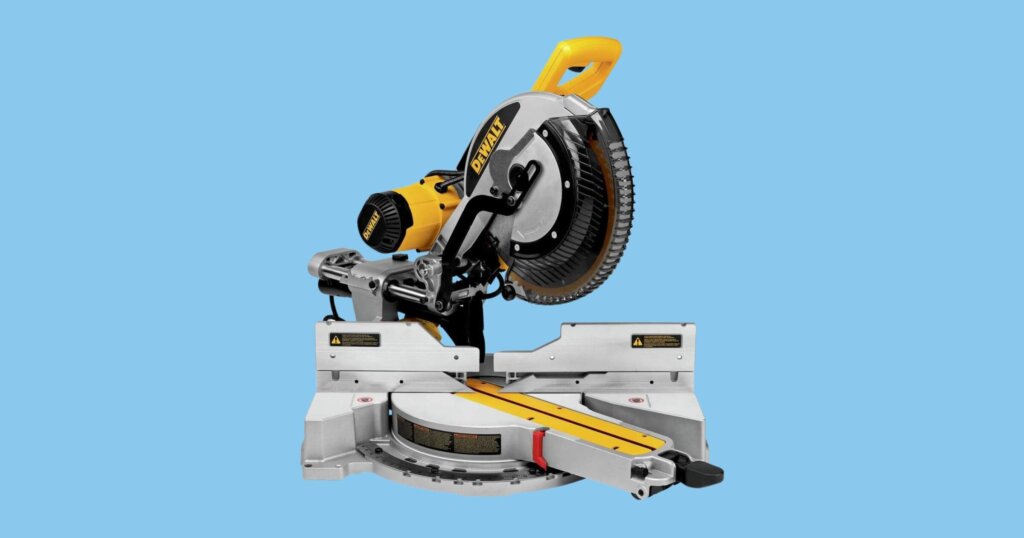
The DeWalt DWS780 is a 12-inch double-bevel sliding compound miter saw built for jobsite versatility and precision. Like the Bosch, it’s powered by a substantial 15-amp motor, but what sets it apart is the XPS cross-cut alignment system. Instead of relying on a laser, this smart feature casts a shadow of the blade onto your workpiece, so you always know exactly where you’re cutting, no calibration needed. It’s a favorite among pros for its solid cutting capacity, reliable accuracy, and lighter weight, making it easier to lug around from site to site without sacrificing performance.
How do Bosch and DeWalt miter saws compare on paper?
Before we dive into how these saws perform on the job, let’s take a quick look at how they stack up in raw numbers.
| Specification | Bosch GCM12SD | DeWalt DWS780 |
| Motor power | 15-amp corded | 15-amp corded |
| Blade size | 12 inches | 12 inches |
| No-load speed | 3,800 RPM | 3,800 RPM |
| Bevel range | 47° left and right | 49° left and 47° right |
| Miter range | 52° left, 60° right | 50° left, 60° right |
| Sliding mechanism | Axial-Glide™ (rail-free) | Traditional dual-rail slider |
| Weight | ~65 lbs | ~56 lbs |
| Special features | Compact glide arm, front bevel controls | XPS shadow line guide, built-in handle |
Performance and power: Which miter saw packs more punch?
Both the Bosch GCM12SD and the DeWalt DWS780 bring serious muscle to the table when it comes to cutting power. With 15-amp motors spinning 12-inch blades at 3,800 RPM, they’re more than capable of handling thick hardwoods, wide baseboards, and everything in between.
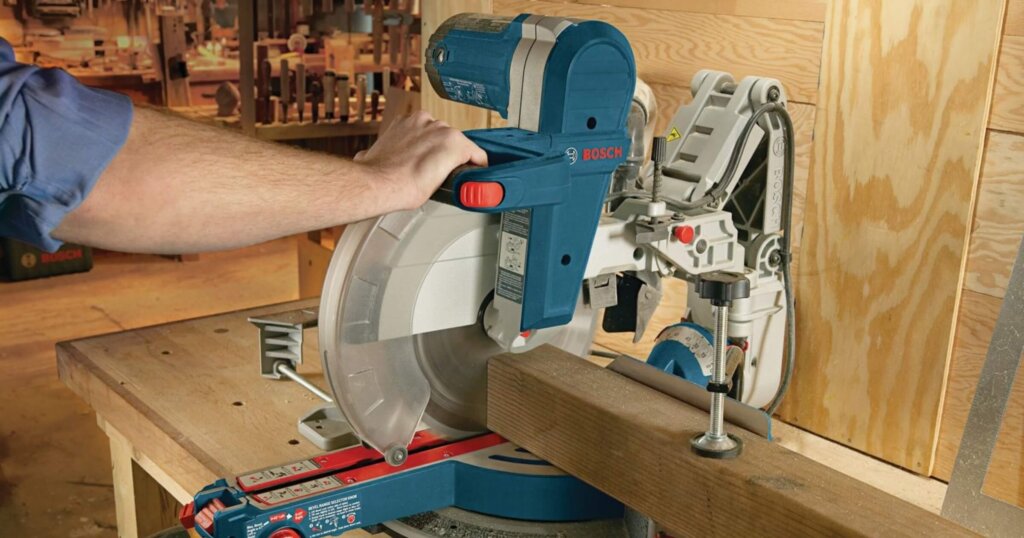
The Bosch shines with its Axial-Glide™ system, giving users a super smooth and consistent glide, ideal for finish carpentry or cabinetry work where precision matters. Meanwhile, the DeWalt edges ahead slightly in repetitive framing cuts, thanks to its lighter build and classic rail system, which offers fast, straight cuts with minimal setup.
The DeWalt’s XPS shadow line system pulls its weight around accuracy. It projects a blade-shaped shadow on your material so you can see exactly where the cut will land; no lasers, calibration, or second-guessing. Bosch is still extremely precise and offers fantastic control, but it doesn’t come with a built-in cutline guide, which some users may miss, especially in dimly lit workshops.
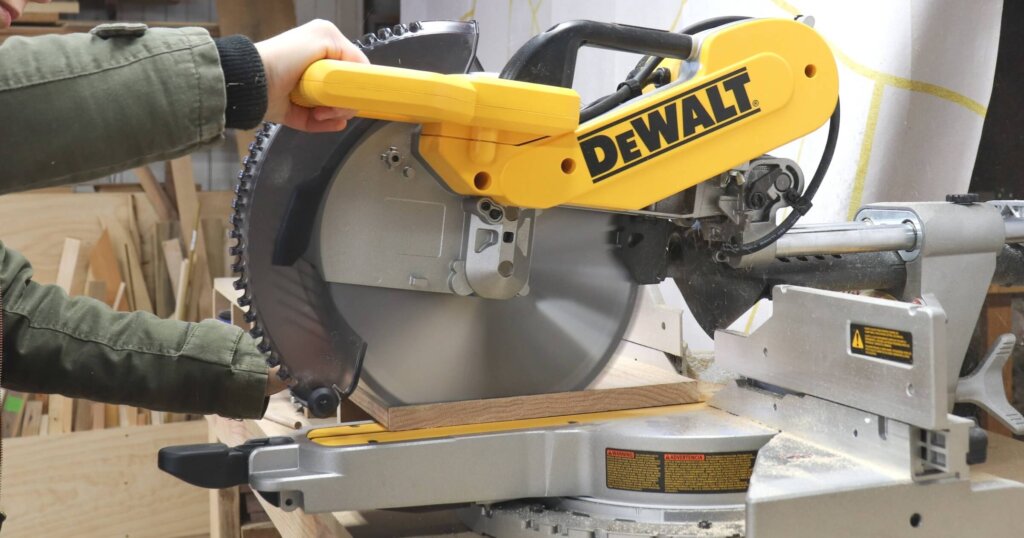
User reviews tend to highlight Bosch for its long-lasting durability and buttery-smooth glide, making it a go-to for pros who prioritize craftsmanship. On the other hand, DeWalt gets praise for being reliable, accurate, and easy to haul around, making it a favorite for contractors and remodelers who need performance on the go.
Ease of use and ergonomics: Which miter saw is more beginner-friendly?
The DeWalt DWS780 has a slight edge for overall ease of use, especially for folks who need to move their tools around. It’s noticeably lighter than the Bosch GCM12SD, making it easier to carry to job sites or maneuver in tight spaces. The Bosch, on the other hand, is bulkier and heavier, but that extra weight gives it a rock-solid feel once it’s set up, which can be reassuring during precise cuts.
Both saws feature user-friendly controls, but Bosch takes things a step further with front-facing bevel adjustments, so you don’t have to reach behind the saw to make changes. DeWalt uses a more traditional layout, which still works well but may require a little more fiddling depending on the cut.
Verdict on ergonomics: If you’re just getting started or moving between job sites frequently, the DeWalt DWS780 is the more beginner-friendly pick. But if you’re focused on long-term use, smooth operation, and a solid feel under your hands, the Bosch GCM12SD delivers a more premium cutting experience.
Bosch vs DeWalt miter saws: Price and value compared
The Bosch GCM12SD typically lands in the $650 to $750 USD range, making it the more expensive of the two. But with that higher price tag comes premium build quality and the ultra-smooth Axial-Glide™ system that sets it apart from traditional sliding miter saws. For woodworkers who prioritize long-term durability, it’s a worthwhile investment.
The DeWalt DWS780 usually comes in around $600 USD, and while it’s more budget-friendly, it still packs in a ton of value. You get excellent cutting performance, a highly portable design, and the handy XPS LED alignment system, all of which make it a smart choice for pros and DIYers who are constantly on the move.
If you’re after a tool that’s easy to transport, quick to set up, and ready to go right out of the box, the DeWalt might just offer better bang for your buck.
Features and accessories: What extra features do they offer?
Both saws offer a few bonus features that can make a difference depending on how and where you work.
Bosch GCM12SD comes equipped with its standout Axial-Glide™ system, which not only saves space but also delivers incredibly smooth, controlled cuts. It also features front-facing bevel controls for quick and easy angle adjustments, and a dust chute with a vacuum adapter to help keep your workspace cleaner, which is especially useful in a home shop or garage setup.
DeWalt DWS780, on the other hand, includes the highly praised XPS LED cross-cut alignment system, giving you a precise shadow cutline without the need for calibration. It also comes with a rugged carry handle, dust bag, and work clamp, all of which make it better suited for jobsites where portability and convenience are important.
These added touches won’t make or break your decision, but they do sweeten the deal depending on your workflow.
DeWalt vs Bosch: Miter saws pros and cons
Bosch GCM12SD
Pros:
- Smooth Axial-Glide™ system
- High build quality and durability
- Precise, stable cuts
- Convenient front bevel controls
Cons:
- Heavy and less portable
- No integrated cutline lighting
- Higher price tag
DeWalt DWS780
Pros:
- XPS LED alignment system for accurate cuts
- Lighter and more portable for jobsite use
- Great all-around performance across materials
- Easy to carry and set up
Cons:
- Rail system takes up more space behind the saw
- May develop slight play with heavy long-term use
- Dust collection isn’t as efficient as Bosch’s with a vacuum setup
Which miter saw should you buy?
Both the Bosch GCM12SD and the DeWalt DWS780 are excellent miter saws that deliver power, precision, and reliability, but they shine in different ways. If you’re a contractor, framer, or remodeler who needs a saw that’s easy to transport, quick to set up, and accurate on the go, the DeWalt DWS780 is the best choice. But if you’re more focused on fine woodworking, cabinetry, or shop-based projects, the Bosch GCM12SD offers unmatched glide precision, build quality, and stability that make it a long-term asset.
Ultimately, the right choice depends on your priorities.
Want more side-by-side tool reviews and pro gear guides like this? Subscribe to our newsletter and get the latest updates, comparisons, and industry insights delivered straight to your inbox.
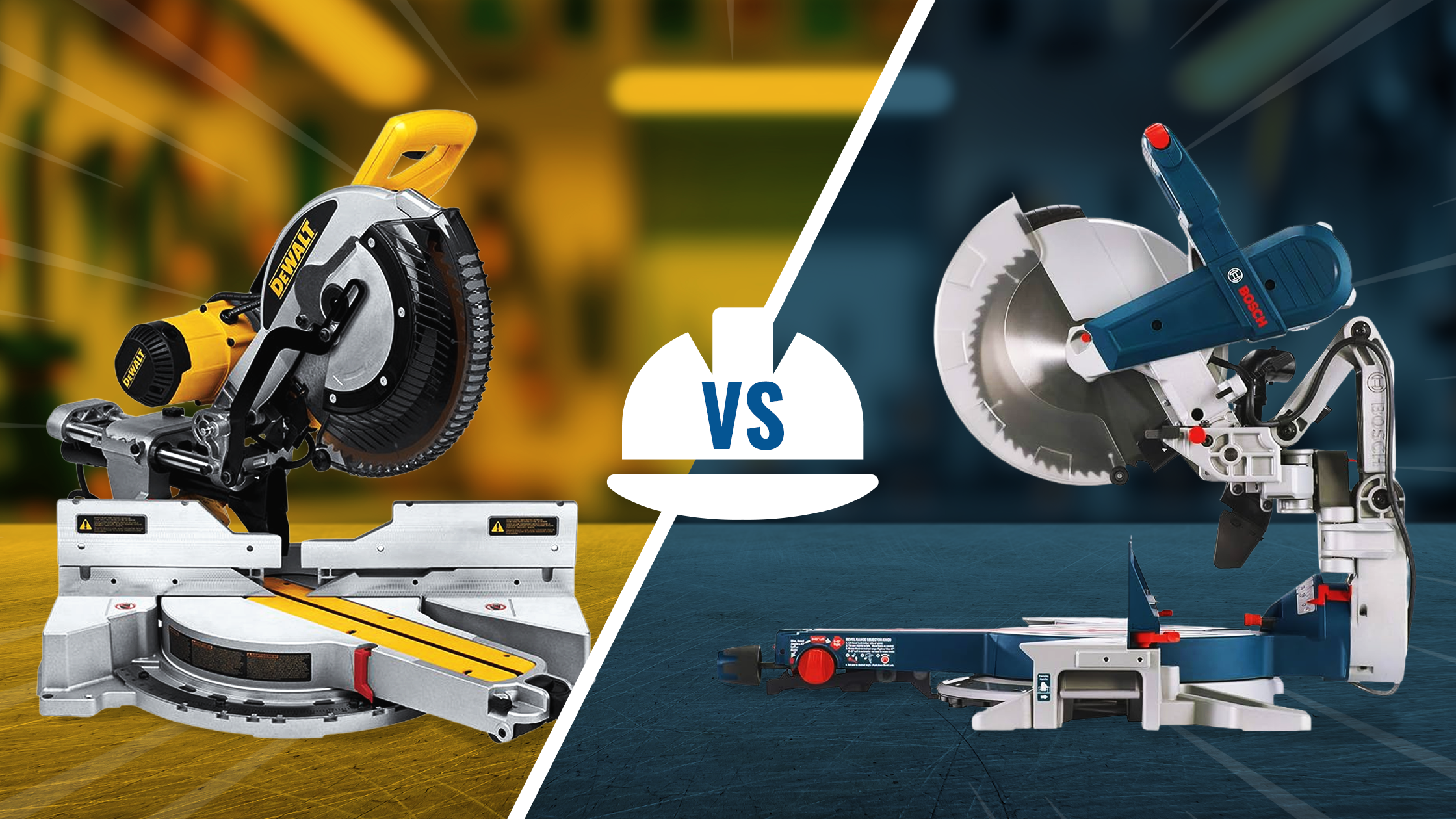


1 comment